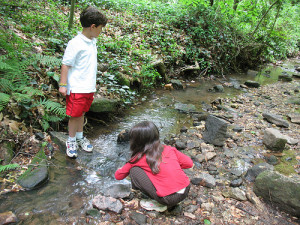When the weather is nice, we spend more time outdoors with the children. Playing in the back yard, at the playground, or walking on nature trails are great ways to get fresh air and exercise.

What are ticks? – Ticks are small mites that attach to the skin and suck blood. Click HERE to see examples of ticks.
Where are ticks commonly found? – Ticks are typically found in areas with trees, bushes, or tall grass. This includes back yards, parks, nature areas, and most places you would be spending time with the children outdoors in the nice weather.
What needs to be done? – When you return home from areas where ticks might live, carefully check the children and yourself (clothing, skin, and scalp) for ticks. If you find a tick on one of your host children, notify your host parents immediately.
Most ticks do not carry diseases, and most tick bites do not cause serious health problems. But it is important to remove a tick as soon as you find it. Removing the tick completely and cleaning the area with soap and water or antiseptic spray, may help avoid diseases such as Lyme Disease that the tick may pass on during feeding, or a skin infection where it bit you.
Click HERE for Instructions on Removing a tick from WebMD.com.
How do you reduce the risk of tick bites? – Use a repellent with DEET on the skin. Repellents containing 20% or more DEET can protect up to several hours. Always follow product instructions. Adults should apply this product to their children, avoiding the hands, eyes, and mouth. When you come back in from outside, it’s best to wash the repellent off of the skin with soap and water. For detailed information about using DEET on children, see the American Academy of Pediatrics.
